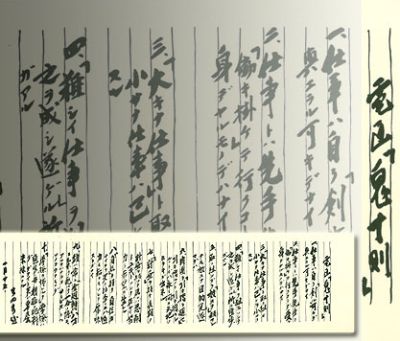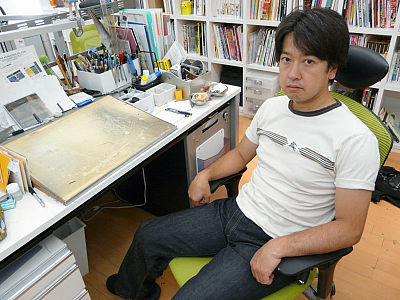Dentsu “Oni Jyunori” and Dentsu “Ura Jyunori”

Dentsu, the world's largest advertising agency, has a very famous code of conduct called the ``Oni Ten Rules,'' which was created in 1951 by the fourth president, Hideo Yoshida, and can be said to be the code of conduct for Dentsu employees, commonly known as ``Dentsu Man.'' There is a word. He says,
1. Jobs should be created by oneself, not given to them.
2. Work is not something you do passively, it means proactively working on things.
3. Take on big tasks, and small tasks make you smaller.
4. Progress is made by aiming for difficult tasks and accomplishing them.
5. Don't let go once you've worked on it, don't let go even if it kills you, until you accomplish your goal...
6. Drag those around you, and the difference between dragging and being dragged will change the world in a long time.
7. Having a plan, and having a long-term plan, breeds patience, ingenuity, and proper effort and hope.
8. Be confident, because you lack confidence, your work lacks power, tenacity, and even depth.
9. Service is about always keeping your mind on track, paying attention to all directions, and never leaving a moment's gap.
10. Don't be afraid of friction, friction is the mother of progress and the fertilizer of positivity, otherwise you will become subservient and inexperienced.
something like. This is fairly well known, but apparently there was also a reverse version called Dentsu's `` Ura Ten Zoku .''
the detail is right below.
Ten Rules of Ura | Blog | nozomu.net - Nozomi Yoshida Office -
1) Don't create your own work. Everyone will be crushed.
2) Don't be proactive when it comes to work. It's just tiring.
3) Don't take on big tasks. Big jobs put a lot of responsibility on yourself.
4) Don't aim for difficult jobs. Even if I try to accomplish this, no one will help me.
5) Once you've worked on something, let it go. Even if you make fun of me, let me go before I get burned...
6) Don't drag those around you. While you're dragging your feet, you'll become everyone's nose picker before you know it.
7) Don't have a plan. Long-term plans breed anger, frustration, and empty disappointment and boredom.
8) Don't be confident. Because of your confidence, your work will be disliked and disliked, and eventually no one will want to work with you.
9) Always keep your head in full rotation. Be careful in all directions and never tell even a single bit of the truth. That's what Gomasuri is.
10) Fear friction. Friction is the mother of trouble and the fertilizer of point deductions. If you don't, you'll become Don Quixote at Tsukiji.
If you actually join a company and work, you might be able to understand that these ``Ten Rules'' are true in Japanese society.
In addition, Dentsu has other quotes that are not currently used, but are more suggestive for work.
Dentsu - Wikipedia (Three Articles of Responsibility)
1. Orders, reinstatement, communications, and reports are the responsibility of the person who gave them until the results are confirmed and the effects are understood. Responsibility within these limits cannot be avoided.
2. If you do not have the wisdom and talent to hear the One and know the Ten, then you must have the attentiveness and sense of responsibility to hear the One and do the One perfectly. A person who hears one and confuses ten will cause a hundred harms and no benefit. It is truly a cancer of organizational activity. It should be deleted.
3. For us, the formal theory of responsibility is no longer of any value. Our job is to make blood bleed when you poke it. We risk our lives from day to day.
When I read this, I once heard something on Softbank or Livedoor: ``A salaryman who only works after being told to do so is a salaryman, and a businessman who works on his own initiative to bring profits to the company without being told to do so.'' It reminds me of the words.
Is your company now ``Oni Jyoku'' or ``Ura Jyoku''?
Related Posts:
in Free Member, Column, Posted by darkhorse







